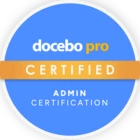@tommyVan and @Eric M VanAuken
At this time it’s not possible to map manager status and manager assignments via the SSO. The only options are via API or having the LMS pick up a CSV file on a specified cadence via the SFTP and the automation app (as well as manually loading a csv).
We have many customers who are accomplishing this via active directory and our APIs and my suggestion would be to use the batch import users api which can be used to both create and update users.
You can read more on the parameters and schema by navigating to the API browser at yourdomain.com/api-browser.
I’d also suggest reviewing the API Documentation located here
I searched through the ideas portal and discovered that there’s a technical reason we don’t support it.
thanks for this idea and apologies for the delay in updating the status. The team reviewed and determined that they do not plan to implement this because Saml attributes map to user attributes and manager is not a user attribute, it is a relationship between two users. If the manager did not exist (never logged in, etc), there is no way to create the relationship. We have the ability for both users and/or managers to select their subordinates/managers if you don’t want to rely on a csv or similar to make these associations.







